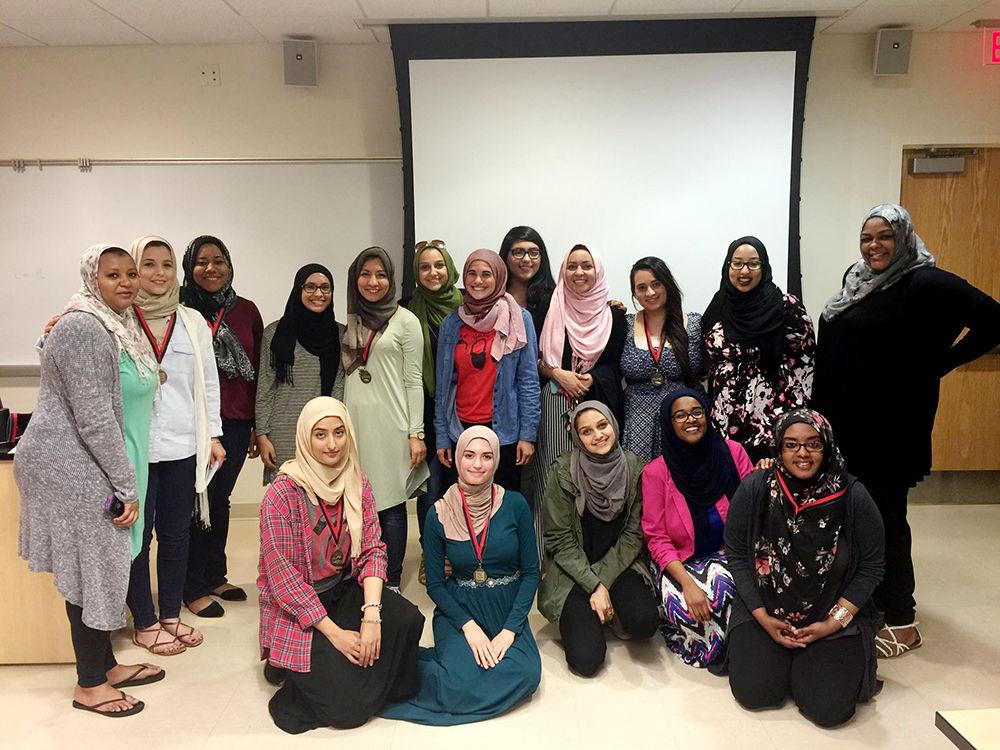
Courtesy of NCSU Muslim Students Association
Muslim Students Association
An NC State professor has surveyed schools across the nation to find new data on interfaith engagement and the religious diversity from students’ time in high school to their first year of college.
The Interfaith Diversity Experiences & Attitudes Longitudinal Survey (IDEALS) was developed by Alyssa Rockenbach, a professor at NC State in the Department of Educational Leadership, Policy, and Human Development, along with Matthew Mayhew, a faculty member at Ohio State University.
Rockenbach and Mayhew have been working together on interfaith research for the past decade and began working with Interfaith Youth Core (IFYC) in 2011 to widen outreach. IFYC is a nonprofit that works to integrate interfaith cooperation into the norm. The sample of the study was a group of about 7,000 first-year students from 122 institutions around the United States.
Rockenbach said her initial work with her colleague is what motivated her further studies surrounding how students approach religious differences.
“Once [Mayhew] and I saw that interfaith questions were leading us into areas of diversity and campus climate, we thought we really should start to assess these issues more deeply,” Rockenbach said. “A lot of the research we had been doing was snapshots, so we’d go in and do the survey of students and have a sense of where the students were right at that moment in time. We really needed to understand how they develop and change. That’s where IDEALS came into play.”
Rockenbach explained the repeated observations over the time of the survey and the contribution those observations had on improving the study. The research of the study was updated for efficacy and accuracy in 2015.
“The project evolved to be able to have that longitudinal component to understand how students change,” Rockenbach said. “When we followed up with students at the end of their first year of college, we asked about their experiences on campus.”
Pluralism orientation, as defined by Rockenbach, is the extent a person is open to people of other backgrounds, and the extent to which they are interested in engaging in interfaith leadership.
“Basically, [students] being able to commit to their own worldview at the same time that they can have positive relationships with people that have other perspectives and worldviews,” Rockenbach said of pluralistic orientations.
The survey also highlighted growth in students’ appreciative stances towards students of a variety of backgrounds different from their own.
“If you look at the results, you see that attitudes towards every other identity group that we asked about grow at least by seven percentage points and up to fifteen percentage points,” Rockenbach said. “Across one year, that’s an impressive change. I expected to see change, but not to that degree.”
Despite the growth in attitudes, researchers found students’ engagement in religious diversity activities was the most unexpected finding of the survey.
“There is some misalignment between values and action. Students in their last year of high school had a pretty high level of engagement in religious diversity activities,” Rockenbach said. “We see those numbers fall in that first year of college; we did not expect that.”
Daniel Rose, a fourth-year studying sports management, is a Bible study leader and intern with Cru. As an active member in a Christian organization, Rose has had exposure to the religious paths college can present for first-year students.
“It’s very popular in our culture that people who grew up in Christian homes get to college and have a sense of freedom, then they kind of go their own way,” Rose said. “Also, I think some people that maybe didn’t grow up going to church are able to find that in college with the freedom.”
Moneeb Sayed, a fourth-year studying science, technology and society, is the president of the Muslim Student Association (MSA). Sayed uses his role in MSA to reflect the value of engaging in interfaith dialogue.
“We try to have at least three [interfaith] events a semester,” Sayed said. “After we graduate and get into the real world, we’re not going to be in a place with only Muslims or only Christians. We’re all in this world together, we might as well learn about each other.”